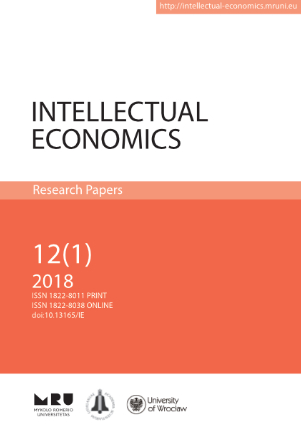ADMINISTRATIVE DISCRETION ASSUMPTIONS IN DEVELOPING CUSTOMS LOGISTICS
ADMINISTRATIVE DISCRETION ASSUMPTIONS IN DEVELOPING CUSTOMS LOGISTICS
Author(s): Alfonsas LaurinavičiusSubject(s): Economy, Transport / Logistics
Published by: Mykolas Romeris University
Keywords: security of international flows; customs logistics; administrative discretion; logistic activity; customs and business;
Summary/Abstract: In recent years, increasing attention has been paid to the security of international flows, with a focus on a specific area of logistics, namely, customs logistics, understandably both as a new branch of science and as an integral, complex and multifaceted area of activity. Customs logistics includes the processes, functions and challenges of transportation, warehousing, forwarding, inventory management, management of flows/resources and other areas of activity, insofar as they are related to the legal acts implemented by customs, customs supervision, interaction between customs and business in developing secure international trade. This is an area of research and practice which is rapidly developing, is open to innovations and new ideas, is introducing smart technologies and is consolidating intellectual capital and which is closely linked to economics, management, law and other areas of research activity. The distinctive feature of logistics, including customs logistics, is the management of flows and resources in the international supply chain, regulation of logistic operations, functions and processes at the international, regional and national levels, wide geography of activities, increasingly complex interactions between entities of logistic activity, optimal use of resources, creation of added value using instruments of logistic activity, rational and effective risk management, ensuring of safety and security.The outcome of activity in customs logistics (the length of delivery of a consignment, safety and security, speedy and inexpensive completion of formalities, prompt and efficient performance of logistic operations) is determined not only by the logistic operations performed, but also, and sometimes primarily, by the nature of interaction between entities of this activity and controlling institutions (customs authorities, border guard, etc.), possibilities of cooperation and its consequences, the compatibility of information, computer and communications technologies, the efficient use of available information resources, the validity, objectivity and rationality of decisions and discretions. Changes in the activity of customs as the state institution implementing customs and international trade policy directly and significantly influence the security of the EU’s economic area.The article presents one of the possible concepts of customs logistics as a new area of logistic activity, discusses guidelines for customs and business cooperation and tendencies of the implementation of the discretionary powers granted to customs officials in enhancing the security of international trade.
Journal: Intelektinė ekonomika
- Issue Year: 12/2018
- Issue No: 1
- Page Range: 34-46
- Page Count: 13
- Language: English

